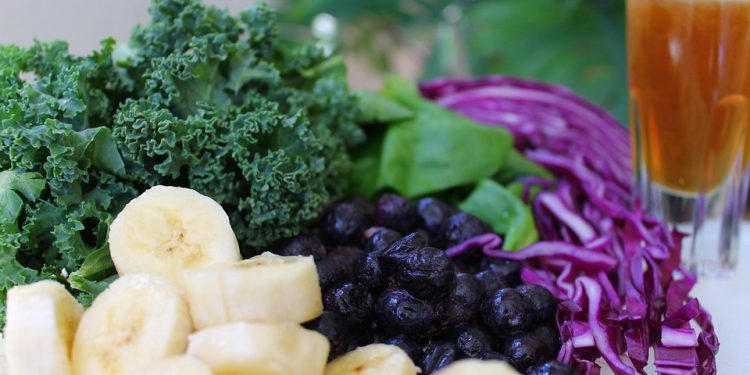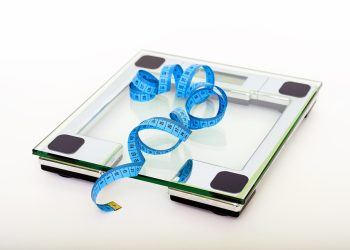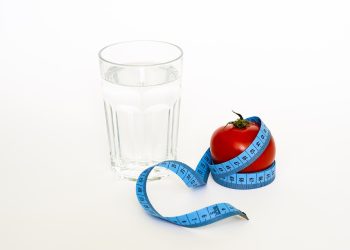Understanding Sustainable Weight Loss: A Simple Guide
Losing weight is a common goal, but achieving sustainable weight loss is where many people struggle. It’s not about quick fixes or fad diets; it’s about making lasting changes to your lifestyle that support your health and well-being. This guide will break down what sustainable weight loss truly means, how to achieve it, and why it’s the best approach for long-term success.
What is Sustainable Weight Loss?
Sustainable weight loss is a gradual and consistent approach to losing weight that prioritizes long-term health over rapid results. It focuses on creating healthy habits related to diet and exercise that you can maintain for the rest of your life. Unlike crash diets, which often lead to yo-yo dieting and potential health risks, sustainable weight loss aims for a realistic and manageable pace.
Key characteristics of sustainable weight loss include:
- Gradual Weight Loss: Aiming to lose 1-2 pounds per week.
- Lifestyle Changes: Focusing on making permanent changes to diet and exercise habits.
- Nutrient-Dense Diet: Emphasizing whole, unprocessed foods.
- Regular Physical Activity: Incorporating exercise you enjoy into your routine.
- Mindful Eating: Paying attention to hunger cues and eating with intention.
- Stress Management: Addressing stress levels to prevent emotional eating.
- Realistic Goals: Setting achievable and measurable goals.
- Patience and Consistency: Understanding that it takes time and effort to see results.
Why Choose Sustainable Weight Loss?
The benefits of sustainable weight loss extend far beyond just the number on the scale. It promotes overall well-being and can significantly improve your quality of life.
- Long-Term Weight Management: Increases the likelihood of keeping the weight off permanently.
- Improved Physical Health: Reduces the risk of chronic diseases like type 2 diabetes, heart disease, and certain cancers.
- Enhanced Mental Health: Boosts mood, self-esteem, and reduces symptoms of anxiety and depression.
- Increased Energy Levels: Provides sustained energy throughout the day.
- Better Sleep Quality: Promotes more restful and restorative sleep.
- Improved Gut Health: Supports a healthy gut microbiome through fiber-rich foods.
- Sustainable Habits: Creates healthy habits that last a lifetime.
The Principles of Sustainable Weight Loss
Achieving sustainable weight loss involves adopting a holistic approach that encompasses various aspects of your lifestyle.
1. Calorie Balance: The Foundation
While the type of food you eat matters, calorie balance is the underlying principle of weight loss. To lose weight, you need to create a calorie deficit – meaning you burn more calories than you consume.
Calculate Your Calorie Needs: Use an online calorie calculator to estimate your daily calorie needs based on your age, sex, activity level, and weight loss goals. There are many free online resources available, such as those from the National Institutes of Health.
Track Your Intake: Keep a food diary or use a food tracking app to monitor your calorie intake. This helps you become more aware of your eating habits and identify areas for improvement. Apps like MyFitnessPal or Lose It! are popular choices.
Create a Moderate Deficit: Aim for a calorie deficit of 500-750 calories per day to lose approximately 1-2 pounds per week. Avoid drastic calorie restrictions, as they can lead to nutrient deficiencies and rebound weight gain.
2. Focus on Nutrient-Dense Foods
Prioritize whole, unprocessed foods that are packed with nutrients and fiber. These foods will keep you feeling full and satisfied, making it easier to stick to your calorie goals.
Embrace Fruits and Vegetables: Fill half your plate with fruits and vegetables at each meal. They are low in calories and high in vitamins, minerals, and fiber. Aim for a variety of colors to get a wide range of nutrients.
Choose Lean Protein Sources: Include lean protein sources like chicken breast, fish, beans, lentils, tofu, and eggs in your diet. Protein helps you feel full and supports muscle growth and repair.
Opt for Whole Grains: Choose whole grains like brown rice, quinoa, oats, and whole-wheat bread over refined grains. Whole grains are higher in fiber and nutrients.
Healthy Fats are Key: Include healthy fats like avocados, nuts, seeds, and olive oil in moderation. Healthy fats are essential for hormone production and overall health.
Limit Processed Foods: Minimize your intake of processed foods, sugary drinks, and unhealthy fats. These foods are often high in calories and low in nutrients.
3. Incorporate Regular Physical Activity
Exercise is an essential component of sustainable weight loss. It helps you burn calories, build muscle, and improve your overall health.
Find Activities You Enjoy: Choose activities you genuinely enjoy, whether it’s dancing, swimming, hiking, cycling, or playing a sport. This will make it easier to stick to your exercise routine.
Aim for a Mix of Cardio and Strength Training: Cardio exercises like running, swimming, and cycling burn calories and improve cardiovascular health. Strength training helps build muscle, which increases your metabolism and helps you burn more calories at rest.
Start Gradually: If you’re new to exercise, start slowly and gradually increase the intensity and duration of your workouts. Consult with a healthcare professional before starting a new exercise program.
Aim for at Least 150 Minutes of Moderate-Intensity Aerobic Exercise per Week: This is the recommendation from the American Heart Association and other health organizations.
4. Practice Mindful Eating
Mindful eating involves paying attention to your hunger cues, eating slowly, and savoring each bite. It can help you become more aware of your eating habits and prevent overeating.
Eat When You’re Hungry: Don’t wait until you’re starving to eat. Eat when you feel genuinely hungry, and stop when you’re satisfied, not stuffed.
Eliminate Distractions: Avoid eating in front of the TV or computer. Focus on your food and the act of eating.
Chew Slowly and Thoroughly: This gives your brain time to register that you’re full.
Pay Attention to Your Body’s Cues: Listen to your body’s signals of hunger and fullness. Stop eating when you feel satisfied, even if there’s food left on your plate.
5. Manage Stress and Get Enough Sleep
Stress and sleep deprivation can disrupt your hormones and lead to increased appetite and cravings. Managing stress and prioritizing sleep are crucial for sustainable weight loss.
Find Healthy Ways to Manage Stress: Practice relaxation techniques like yoga, meditation, or deep breathing exercises. Spend time in nature, engage in hobbies, or connect with loved ones.
Prioritize Sleep: Aim for 7-9 hours of sleep per night. Establish a regular sleep schedule, create a relaxing bedtime routine, and avoid caffeine and alcohol before bed.
6. Set Realistic Goals and Track Progress
Setting realistic goals and tracking your progress can help you stay motivated and on track. Break down your weight loss goal into smaller, more manageable steps.
Set SMART Goals: SMART goals are Specific, Measurable, Achievable, Relevant, and Time-bound. For example, instead of saying “I want to lose weight,” set a goal like “I want to lose 1-2 pounds per week for the next 12 weeks.”
Track Your Progress: Weigh yourself regularly (but not obsessively), take measurements, and track your food and exercise. This will help you monitor your progress and identify areas where you may need to make adjustments.
Celebrate Your Successes: Acknowledge and celebrate your accomplishments, no matter how small. Reward yourself with non-food items like a new workout outfit, a massage, or a weekend getaway.
7. Seek Support and Accountability
Having a support system can make a significant difference in your weight loss journey. Surround yourself with people who support your goals and hold you accountable.
Join a Support Group: Consider joining a weight loss support group, either online or in person. Sharing your experiences with others who understand can be incredibly helpful.
Work with a Healthcare Professional: Consult with a registered dietitian or certified personal trainer for personalized guidance and support. They can help you create a customized plan that meets your individual needs.
Find an Accountability Partner: Partner with a friend or family member who is also trying to live a healthier lifestyle. Check in with each other regularly, share your successes and challenges, and provide mutual support.
Examples of Sustainable Weight Loss Strategies
Here are a few practical examples of how to incorporate sustainable weight loss strategies into your daily life:
- Instead of: Ordering takeout pizza on Friday nights. Try: Making a homemade pizza with whole-wheat crust, lots of vegetables, and lean protein.
- Instead of: Drinking sugary sodas. Try: Drinking water, unsweetened tea, or sparkling water with a splash of fruit juice.
- Instead of: Skipping breakfast. Try: Eating a balanced breakfast that includes protein, fiber, and healthy fats, such as oatmeal with berries and nuts or a Greek yogurt parfait.
- Instead of: Sitting at your desk all day. Try: Taking short breaks to walk around, stretch, or do some desk exercises.
- Instead of: Emotional eating. Try: Identifying your triggers for emotional eating and finding healthier ways to cope with stress, such as exercise, meditation, or spending time with loved ones.
Conclusion
Sustainable weight loss is not a race; it’s a journey. It’s about making long-term lifestyle changes that support your health and well-being. By focusing on nutrient-dense foods, regular physical activity, mindful eating, stress management, and realistic goals, you can achieve sustainable weight loss and improve your overall quality of life. Remember to be patient with yourself, celebrate your successes, and seek support when you need it. The key is consistency and a commitment to creating healthy habits that will last a lifetime.
Frequently Asked Questions (FAQs)
Here are some frequently asked questions about sustainable weight loss:
- Q: How long does it take to see results with sustainable weight loss?
- A: You can typically expect to see noticeable results within a few weeks to months, depending on your individual efforts and consistency. The key is to focus on the long-term process rather than expecting immediate results.
- Q: Is it okay to have cheat meals on a sustainable weight loss plan?
- A: Yes, it’s perfectly fine to incorporate occasional treats or “cheat meals” into your diet. The 80/20 rule is a good guideline: aim to eat healthy 80% of the time and allow yourself some flexibility for the remaining 20%.
- Q: What if I have a setback or slip-up?
- A: Setbacks are a normal part of the weight loss journey. Don’t beat yourself up about it. Simply acknowledge the slip-up, learn from it, and get back on track as soon as possible. One bad meal or day doesn’t derail your progress.
- Q: Can I lose weight without exercise?
- A: While it’s possible to lose weight through diet alone, exercise offers numerous benefits beyond weight loss, including improved cardiovascular health, increased energy levels, and enhanced mood. Combining diet and exercise is the most effective approach for sustainable weight loss.
- Q: What if I’m not losing weight as quickly as I’d like?
- A: Weight loss is not always linear. There may be periods where you plateau. Review your food intake, exercise routine, and stress levels to identify any potential factors that may be hindering your progress. Consider consulting with a registered dietitian or certified personal trainer for personalized guidance.
- Q: How do I maintain my weight loss once I’ve reached my goal?
- A: Maintaining weight loss requires continuing the healthy habits you’ve established during your weight loss journey. Continue to prioritize nutrient-dense foods, regular physical activity, and mindful eating. Regularly monitor your weight and make adjustments as needed to prevent weight regain.
- Q: Is sustainable weight loss safe for everyone?
- A: Sustainable weight loss is generally safe for most people. However, it’s always best to consult with a healthcare professional before starting any new weight loss program, especially if you have any underlying health conditions.
- Q: Where can I find more information and support?
- A: There are many resources available to support your weight loss journey, including registered dietitians, certified personal trainers, support groups, and online communities. Websites like the Academy of Nutrition and Dietetics (eatright.org) and the American Heart Association (heart.org) offer valuable information and resources.












